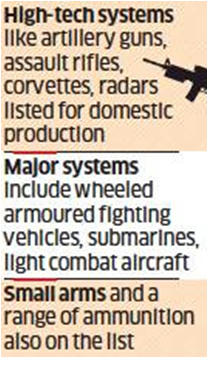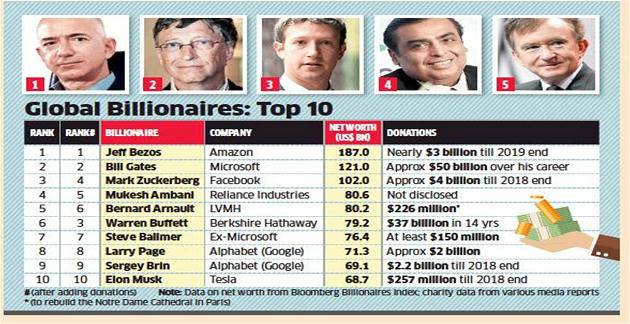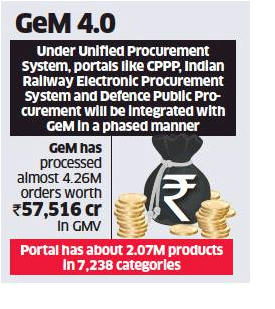Table of Contents
FDI rule change
- Government has tweaked FDI rules.
- RBI will have greater say in administering all issues relating to foreign direct investment (FDI).
- More powers for RBI: It can interpret various rules and grant exemptions pertaining to FDI.
- The rule change applies only to foreign direct investment and not to foreign portfolio investment which is purchase of shares in the secondary market.
- This will cut down FDI processing time
- Until late last year, RBI used to be the sole regulator for FDI through the Foreign Exchange Management Act (FEMA).
- In October 2019, the government scrapped Fema and introduced a new law – Non-Debt Instrument (NDI) rules, which transferred all powers of administering the FDI regime to the finance ministry.
- The RBI continued to process all FDI applications but requests for exemption were always forwarded to the finance ministry.
- The ministry also had powers to interpret the rules.
- Lot of back and forth for permission and clarity will go.
- Another key change brought about in the circular is the discretion to allow applications which otherwise don’t meet the norms.
Defence Imports
- Defence Ministry on Sunday generated a list of 101 military items that will not be imported.
- This bar will be a big push for domestic producers.
- It is estimated that this move will generate orders worth ₹4 lakh crore for Indian companies within the next seven years.

- The list contains items on which an embargo on imports will be implemented between 2020 and 2024.
- Rajnath Singh said more equipment would be identified for an import embargo in due course and a coordinated mechanism for handholding of the industry by the defence services to meet requirements will be put in place.
Business in Slow Lane
- State-level economic indicators such as goods and service tax (GST) collections and electricity demand show
- Gujarat, Maharashtra, Karnataka and Tamil Nadu have seen a slowing of business activity in July from the month before
- Rajasthan, Madhya Pradesh, Uttar Pradesh and Uttarakhand have shown steady recovery from April, when the nationwide lockdown had the biggest economic impact.
- Local lockdowns are big and bad speed breakers
- States’ combined GST collection has slipped from Rs 74,602 crore in June to Rs 66,291 crore in July, with most states reporting a sharp fall.
- Most of the states that have seen a decline in GST collections have been forced to borrow more to meet spending needs.
- July power demand is usually lower than June due to the monsoon advancing across the mainland, but the decline seems to be sharper for many states this year.
- However, NR Bhanumurthy, vice chancellor of Dr BR Ambedkar School of Economics, Bengaluru, is optimistic.
- “By August, the economic activities should be at least at par with 2019-20,” he said. “Collections should be positive in some states.”

Slash Use of Urea
- PM Modi has urged farmers to significantly cut their use of urea to boost income and soil health.
- Modi released ₹17,000 crore to the bank accounts of 85 million farmers as the next instalment of the PM-Kisan scheme vai videoconferencing.
- With this, the scheme has provided over ₹90,000 crore in the hands of more than 100 million farmers since its launch in December 2018.
- India is a large importer of urea and experts have said excessive use of the subsidised nutrient damages the soil’s chemistry and degrades the environment.
- Government was constantly striving to prop up rural India with steps such as the ₹1 lakh crore agriculture infrastructure fund, for which he launched the financing facility on Sunday.
- Under the agriculture infrastructure fund, the first sanction of ₹1,000 crore was made to over 2,280 farmer societies only 30 days after the cabinet approved the scheme.
GeM
- The commerce and industry ministry launched GeM on August 9, 2016, in place of the Directorate General of Supplies and Disposal.
- It was aimed at creating an open and transparent procurement platform of commonly used goods and services for government departments, ministries and agencies.
- After goods and services, GeM will also add work contracts on the portal
- All procurement processes have been made public on the Government e-Marketplace (GeM) portal from July 1 to increase vendor participation and increase competitiveness, commerce and industry minister Piyush Goyal said on Sunday.
- The Indian Railways will soon integrate its procurement process with the GeM, Goyal added.
- The railways presently spend about ₹70,000 crore per annum on procurements.
- According to a World Bank report, there has been an average savings of 9.75% over more than 163,000 cases of procurement analysed on GeM during February 2019 to January 2020.
- GeM has processed almost 4.26 million orders worth ₹57,516 crore in Gross Merchandise Value for about 46,000 government buyers.
- The portal has about 2.07 million products in 7,238 categories.

Download Free PDF






















 WhatsApp
WhatsApp